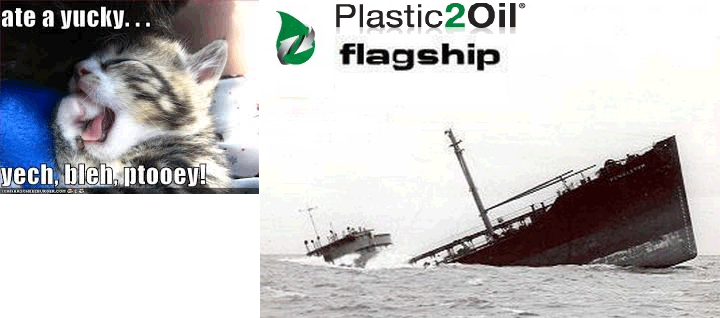Posted On: 05/30/2014 1:02:55 PM
Post# of 43068

Re: PaperProphet #8472
Your analogy is wrong in so many ways. I will try to fix the analogy, but it will be painful and require some absurd assumptions due to the elements involved in the analogy.
First, you seem to keep wanting to use the old business model where feedstock is shipped to P2O. Since that is no longer relevant I won't even try to make the analogy work for that model.
So I will assume that Acme is buying the processors from P2O and will reap all the benefits of having that processor in-house.
Acme is in the business of processing wheat into flour. They package the flour for sale. They spend a fair amount of money on the packaging.
The next assumption is that the waste produced by Acme is the wheat chaff. Also, this chaff is detrimental to the enviroment. Acme must spend money to dispose of the chaff in landfills. There are government incentives to dispose of the chaff in other, environmentally friendly ways. At least more friendly than the landfill method.
The really big assumption - if Acme buys a processor from P2O they can process the chaff into a more environmentally friendly packaging material for their flour.
Now Acme can get rid of the chaff in a way that augments their business and makes the government happy. They can advertise themselves as a green company.
Acme finds that they save so much money from the elimination of landfill costs and packaging costs that they can pay for the P2O processor and associated costs in seven years. The processor has a 20 year life.
Acme comes out ahead by buying the processor.
That's an analogy that makes sense to me.
First, you seem to keep wanting to use the old business model where feedstock is shipped to P2O. Since that is no longer relevant I won't even try to make the analogy work for that model.
So I will assume that Acme is buying the processors from P2O and will reap all the benefits of having that processor in-house.
Acme is in the business of processing wheat into flour. They package the flour for sale. They spend a fair amount of money on the packaging.
The next assumption is that the waste produced by Acme is the wheat chaff. Also, this chaff is detrimental to the enviroment. Acme must spend money to dispose of the chaff in landfills. There are government incentives to dispose of the chaff in other, environmentally friendly ways. At least more friendly than the landfill method.
The really big assumption - if Acme buys a processor from P2O they can process the chaff into a more environmentally friendly packaging material for their flour.
Now Acme can get rid of the chaff in a way that augments their business and makes the government happy. They can advertise themselves as a green company.
Acme finds that they save so much money from the elimination of landfill costs and packaging costs that they can pay for the P2O processor and associated costs in seven years. The processor has a 20 year life.
Acme comes out ahead by buying the processor.
That's an analogy that makes sense to me.
techisbest


